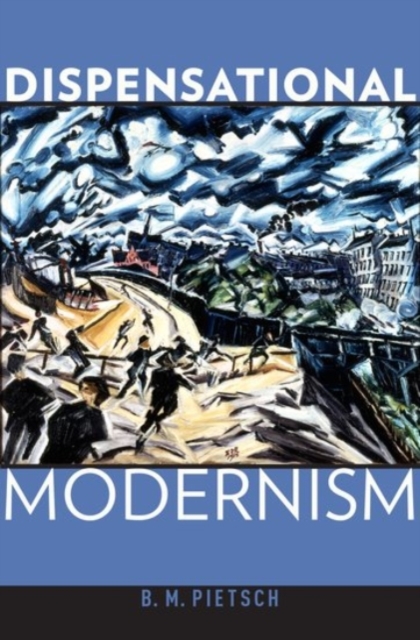
Dispensational Modernism Hardback
by B. M. (Assistant Professor, School of Humanities and Social Sciences, Assistant Professor, Pietsch
Hardback
Description
In the twentieth century dispensationalism emerged as one of the most influential forces in American religion as well as one of America's most significant religious exports.
By the close of the century, dispensationalism had developed into a global religious phenomenon claiming millions of adherents.
Scanning for the "signs of the times" in current world events, scouring their Bibles for prophetic meaning, and creating vivid and elaborate stories about the end times, dispensationalists have played a major role in transforming American religion and politics.
The most common contemporary form of prophecy belief, dispensationalism also plays a significant role in American popular culture (65 million copies of the Left Behind novels sold) and throughout the world, influencing movements from the Nation of Islam to global Pentecostalism.
Despite its importance and continuing appeal, however, scholars often reduce dispensationalism to an anti-modern, apocalyptic literalist branch of Protestant fundamentalism.
Brendan Pietsch argues that, on the contrary, the seemingly mysterious allure of prophecy belief can be understood as a form of technological modernism.
Pietsch shows that dispensational thinking and practices, which emerged between 1870 and 1920, grew out of the popular fascination with applying technological methods - such as quantification and classification - to the interpretation of texts and time.
The central node of this network of texts, scholars, institutions, and practices was the lightning-rod Bible teacher C.I.
Scofield, whose best-selling Scofield Reference Bible became the canonical formulation of dispensational thought.
The first book to contextualize dispensationalism in this new and provocative way, Dispensational Modernism shows how the mainstream, urban Protestant clergy of this time, as they began developing new "scientific" methods for interpreting the Bible also sought to create new grounds for confidence in religious understandings of the Bible and of time itself.
Information
-
Out of stock
- Format:Hardback
- Pages:272 pages, 17 illus.
- Publisher:Oxford University Press Inc
- Publication Date:06/08/2015
- Category:
- ISBN:9780190244088
Information
-
Out of stock
- Format:Hardback
- Pages:272 pages, 17 illus.
- Publisher:Oxford University Press Inc
- Publication Date:06/08/2015
- Category:
- ISBN:9780190244088






